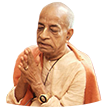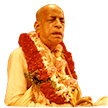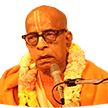Atonement - an essential subject: Difference between revisions
SyamaGopal (talk | contribs) (Created page with "Category:Essential Subjects <!----------------------- edit below this line -----------------------> <!------------------------ begin introduction text --------------------...") |
(Vanibot #0041: Moves Choose Another box to the end) |
||
| Line 2: | Line 2: | ||
<!----------------------- edit below this line -----------------------> | <!----------------------- edit below this line -----------------------> | ||
<!------------------------ begin introduction text ------------------------> | <!------------------------ begin introduction text ------------------------> | ||
Atonement is defined as the making of amends for a wrong doing, injury or sin. It is related to the word reparation: to fix, mend or make ready again. With the goal of making amends, one important feature is that the wrongdoer has a repentant or apologetic attitude. Atonement is also seen as a way to remove the guilt of the offender, to clear one's conscience so to speak. Atonement is most often used as a translation of the Sanskrit word: prāyaścitta. Prāyaścitta, vyavahāra (legal procedure) and ācāra (customary law) make up the dharmaśāstra (scriptures of ethics, religious and legal duty). The most important forms of Prāyaścitta include admission, repentance (anutāpa), restraint of breath (Prāṇāyāma), austerity (Tapas), fire sacrifice (Homa), prayers (Japa), giving of gifts (Dāna), fasting (Upavāsa) and pilgrimages (Tīrthayavartra). Prāyaścittas are required both for the 'cleansing' of one's own soul, and also for the benefit of society, as social contact with a unrepentant sinner is forbidden. Although atonement is recommended, it is not considered a permanent remedy, for one who has not completely abandoned the desire to sin will likely do so again. Only pure atonement, the chanting of God's names for example, is presented as a true solution for the practice can eradicate the dormant, unexpressed desires for future offenses. | |||
Srila Prabhupada's books, lectures, conversations and letters offer a comprehensive presentation of this essential subject as seen in the Vaniquotes '''[[Vaniquotes:Category: | Srila Prabhupada's books, lectures, conversations and letters offer a comprehensive presentation of this essential subject as seen in the Vaniquotes '''[[Vaniquotes:Category:Atonement|Atonement]]''' category. An introduction from his books is given below in the following 8 quotes. | ||
<!-------- end introduction text and don't touch next three lines ---------> | <!-------- end introduction text and don't touch next three lines ---------> | ||
---- | ---- | ||
== Quotes from Srila Prabhupada's books == | == Quotes from Srila Prabhupada's books == | ||
<!----------------- edit quote boxes below this line -----------------> | <!----------------- edit quote boxes below this line -----------------> | ||
{{VaniQuotebox| | {{VaniQuotebox|The acquirement of speculative knowledge is also considered a method of atonement|On the path of speculative knowledge one becomes free from sinful life by understanding things as they are. Therefore the acquirement of speculative knowledge is also considered a method of atonement. While performing fruitive activities one can become free from the actions of sinful life through austerity, penance, celibacy, control of the mind and senses, truthfulness and the practice of mystic yoga. By awakening knowledge one may also neutralize sinful reactions. Neither of these methods, however, can free one from the tendency to commit sinful activities. '''(Śrīmad-Bhāgavatam, 6.1 Summary)'''}} | ||
{{VaniQuotebox| | {{VaniQuotebox|Pariksit Maharaja's observations indicate that even five thousand years ago it was the practice of criminals to atone for their crimes but then commit the same crimes again, as if forced to do so|In some religious sects a sinful man goes to a priest to confess his sinful acts and pay a fine, but then he again commits the same sins and returns to confess them again. This is the practice of a professional sinner. Parīkṣit Mahārāja's observations indicate that even five thousand years ago it was the practice of criminals to atone for their crimes but then commit the same crimes again, as if forced to do so. Therefore, owing to his practical experience, Parīkṣit Mahārāja saw that the process of repeatedly sinning and atoning is pointless. '''(Śrīmad-Bhāgavatam 6.1.9)'''}} | ||
{{VaniQuotebox| | {{VaniQuotebox|A sinful activity cannot be counteracted by a pious activity. Thus real prayascitta, atonement, is the awakening of our dormant Krsna consciousness|This kind of prāyaścitta, or atonement, is condemned by Parīkṣit Mahārāja, the most intelligent king of his time. Śukadeva Gosvāmī, equally intelligent, as befitting the spiritual master of Mahārāja Parīkṣit, answered the King and confirmed that his statement concerning atonement was correct. A sinful activity cannot be counteracted by a pious activity. Thus real prāyaścitta, atonement, is the awakening of our dormant Kṛṣṇa consciousness. Real atonement involves coming to real knowledge, and for this there is a standard process. '''(Nectar of Instruction, Text 1)'''}} | ||
{{VaniQuotebox| | {{VaniQuotebox|A vaisnava-aparadha cannot be atoned for by any means other than by begging the pardon of the offended Vaisnava|If Kṛṣṇa consciousness is covered by material sins, one can eliminate the sins simply by chanting the Hare Kṛṣṇa mantra, but if one pollutes his Kṛṣṇa consciousness by offending a brāhmaṇa or a Vaiṣṇava, one cannot revive it until one properly atones for the sin by pleasing the offended Vaiṣṇava or brāhmaṇa. This was the course that Durvāsā Muni had to follow, for he surrendered unto Mahārāja Ambarīṣa. A vaiṣṇava-aparādha cannot be atoned for by any means other than by begging the pardon of the offended Vaiṣṇava. '''(Śrīmad-Bhāgavatam 4.26.24)'''}} | ||
{{VaniQuotebox| | {{VaniQuotebox|Ordinary atonement may temporarily protect a sinful person, but it does not completely cleanse his heart of the deep-rooted desire to commit sinful acts|One may atone for sinful life and vanquish all sinful reactions by chanting the holy name, although this is not called atonement. Ordinary atonement may temporarily protect a sinful person, but it does not completely cleanse his heart of the deep-rooted desire to commit sinful acts. Therefore atonement is not as powerful as the chanting of the holy name of the Lord. In the śāstras it is said that if a person only once chants the holy name and completely surrenders unto the lotus feet of the Lord, the Lord immediately considers him His ward and is always inclined to give him protection. This is confirmed by Śrīdhara Svāmī. '''(Śrīmad-Bhāgavatam 6.2.49)'''}} | ||
{{VaniQuotebox| | {{VaniQuotebox|The chanting of the Hare Krsna mantra, or glorification of the name, fame and pastimes of the Lord, is recommended as the most perfect process of atonement because such chanting eradicates the dirt from one's heart completely|The ritualistic ceremonies of atonement recommended in the religious scriptures are insufficient to cleanse the heart absolutely because after atonement one's mind again runs toward material activities. Consequently, for one who wants liberation from the fruitive reactions of material activities, the chanting of the Hare Kṛṣṇa mantra, or glorification of the name, fame and pastimes of the Lord, is recommended as the most perfect process of atonement because such chanting eradicates the dirt from one's heart completely. '''(Śrīmad-Bhāgavatam 6.2.12)'''}} | ||
{{VaniQuotebox| | {{VaniQuotebox|The chanting of the holy name of Lord Visnu is the best process of atonement for a thief of gold or other valuables, for a drunkard, for one who betrays a friend or relative, or for one who kills a brahmana|The chanting of the holy name of Lord Viṣṇu is the best process of atonement for a thief of gold or other valuables, for a drunkard, for one who betrays a friend or relative, for one who kills a brāhmaṇa, or for one who indulges in sex with the wife of his guru or another superior. It is also the best method of atonement for one who murders women, the king or his father, for one who slaughters cows, and for all other sinful men. Simply by chanting the holy name of Lord Viṣṇu, such sinful persons may attract the attention of the Supreme Lord, who therefore considers, "Because this man has chanted My holy name, My duty is to give him protection." '''(Śrīmad-Bhāgavatam 6.2.9-10)'''}} | ||
{{VaniQuotebox| | {{VaniQuotebox|If one chants the Hare Krsna maha-mantra without offenses, all of one's sinful actions are surely atoned for immediately, but one should not commit such deeds again, for that is an offense|If one chants the Hare Kṛṣṇa mahā-mantra without offenses, all of one's sinful actions are surely atoned for immediately, but one should not commit such deeds again, for that is an offense. '''(Śrīmad-Bhāgavatam 6.6.14)'''}} | ||
<!----------------- edit quote boxes above this line -----------------> | <!----------------- edit quote boxes above this line -----------------> | ||
''' | '''Atonement - [[Vaniquotes:Category:Atonement|explore more within this category]]'''. | ||
{{EsentialSubjectTotal}} | |||
<div style="float:left;"> | |||
{{EssentialSubjectnav}} | |||
</div> | |||
__NOTOC__ | __NOTOC__ | ||
__NOEDITSECTION__ | __NOEDITSECTION__ | ||
Latest revision as of 15:49, 22 November 2020
Atonement is defined as the making of amends for a wrong doing, injury or sin. It is related to the word reparation: to fix, mend or make ready again. With the goal of making amends, one important feature is that the wrongdoer has a repentant or apologetic attitude. Atonement is also seen as a way to remove the guilt of the offender, to clear one's conscience so to speak. Atonement is most often used as a translation of the Sanskrit word: prāyaścitta. Prāyaścitta, vyavahāra (legal procedure) and ācāra (customary law) make up the dharmaśāstra (scriptures of ethics, religious and legal duty). The most important forms of Prāyaścitta include admission, repentance (anutāpa), restraint of breath (Prāṇāyāma), austerity (Tapas), fire sacrifice (Homa), prayers (Japa), giving of gifts (Dāna), fasting (Upavāsa) and pilgrimages (Tīrthayavartra). Prāyaścittas are required both for the 'cleansing' of one's own soul, and also for the benefit of society, as social contact with a unrepentant sinner is forbidden. Although atonement is recommended, it is not considered a permanent remedy, for one who has not completely abandoned the desire to sin will likely do so again. Only pure atonement, the chanting of God's names for example, is presented as a true solution for the practice can eradicate the dormant, unexpressed desires for future offenses.
Srila Prabhupada's books, lectures, conversations and letters offer a comprehensive presentation of this essential subject as seen in the Vaniquotes Atonement category. An introduction from his books is given below in the following 8 quotes.
Quotes from Srila Prabhupada's books
Atonement - explore more within this category.
Vanipedia has now over 903 introductory articles compiled from Srila Prabhupada's books under the series titled Essential Subjects. All these articles can be seen in the Table of Content on the right side of this article and also here in this Umbrella Category. Browse through them to relish the breadth and depth of Srila Prabhupada's teachings - There is a subject for everyone.







